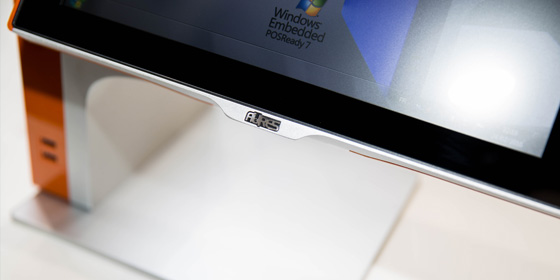by Jason Southern, Channel Manager AURES UK
September is the month of change. The end of summer, the start of autumn and, of course, the beginning of a new academic year.
Across the country, hundreds of thousands of children and young people are starting new classes and new schools, or even moving to new cities to start university life. But behind the scenes, preparations for the start of term have been months in the making, helping to ensure that everything runs like clockwork when pupils and students return.
These days technology now plays a major role in education administration and you will not find many schools, colleges or universities that do not run a dedicated EPOS system. In primary and secondary schools, access controlled cashless catering systems are now the preferred way to manage school meals, helping to improve efficiency and security.
On large college and university campuses, complex integrated EPOS architectures are required to link a variety of different functions and services. In a university for example, you might see EPOS systems used for catering, in student union bars, bookshops, print shops, libraries, sports centres and so on. All of these different operational areas – hospitality, retail, leisure – are combined to work on a centralised platform.
Due to these demands, the technology used in education EPOS often displays a high level of sophistication. In cashless catering systems, for example, it isn’t just a case of having a way to process and log purchases, and perhaps link to an inventory management system. You also need a means of identifying each user and linking purchases to a personal account.
Identity Management
Newcastle-based BioStore works with schools across the UK setting up cashless catering systems. Its broader area of expertise is in identity management, providing solutions ranging from biometric or smartcard access control to printer and library management services. BioStore aims to integrate various ID services into single platforms – its FasTrak cashless catering solution, for example, links directly to staff and pupil attendance registration in schools.
Director of Marketing Qamile Zejnullahi said: “BioStore’s Identity Management allows organisations to bring all their various software applications under one secure roof, simplifying all your day-to-day administrative tasks. Having complete oversight of your various systems, and the users within them, becomes manageable, easily understood, and flexible.”
Cashless catering works by setting up user payment accounts which are topped up with funds online at home, at local PayPoints or via cashloaders at school. When the user goes to the canteen, purchases are processed by linking to their account and deducting payment. Account access can be managed by pupils selecting their name or photograph, using scannable smart cards or tags, or via biometric options like fingerprint scanning.
Hardware therefore plays a critical role in cashless catering. For a system to work effectively, you need an interface that will allow users to identify themselves quickly and efficiently. In primary schools, for example, touchscreens are popular because it means even young children can simply tap a photo of themselves. For older students, a school or college might opt for scanners or card readers.
Flexibility and Connectivity
Describing the key hardware components, Qamile said: “Cashless catering tills must be able to handle multiple forms of identification for customers. Finger scanners, contactless cards and pin numbers are all common, and all require their own peripherals.
“High quality network connectivity is also essential to ensure customer balances are always accurate wherever a purchase takes place and to reduce the chances of unauthorised usage.
“Fast response times are also important. Many large education customers serve over one thousand students within a one-hour window, processed through as few as four tills. This averages to four customers per till per minute with peaks of eight customers per minute. With only seven seconds to take an order, serve food and ring up the purchase on the till, any processing delays can have a major effect.”
Since 2016, BioStore has supplied AURES EPOS terminals and peripherals to its education clients. Its most popular product is the AURES YUNO, a compact touchscreen all-in-one terminal that has the added bonus of being pre-installed with Windows 10 IoT Core, meaning it is already set up to run any readers, scanners or other peripherals required.
“The small form factor and stylish design of the AURES terminals help space utilisation and workspace efficiency, both essential in high throughput environments,” said Qamile. “Customers find the AURES products well designed, stylish and performant. In catering environments, high levels of ingress protection ensure that spills and splashes do not affect service or system operation, something which customers do comment on.”




